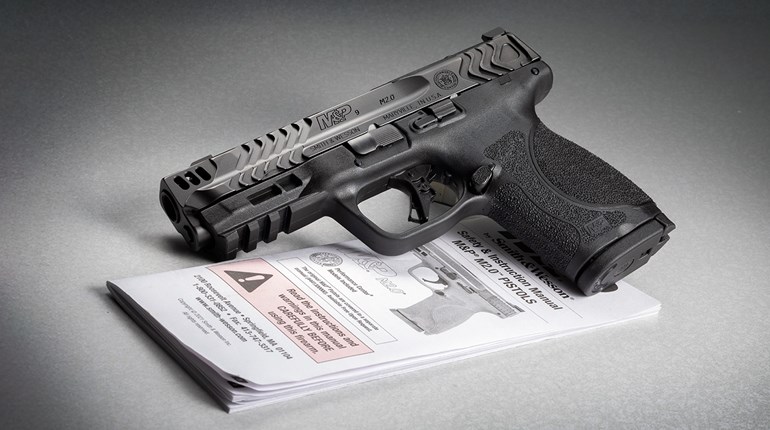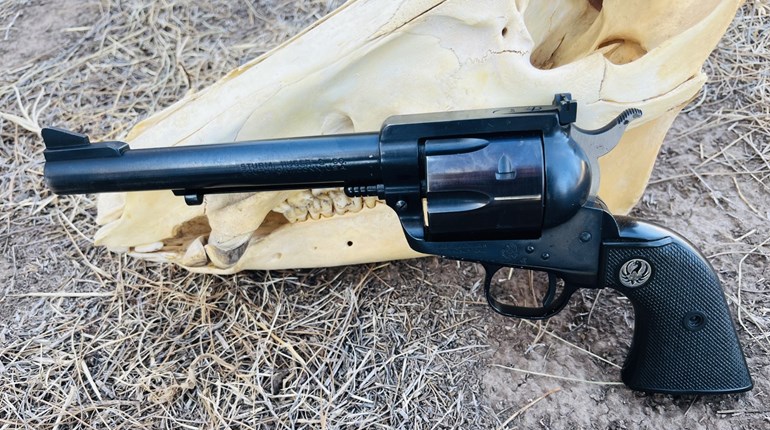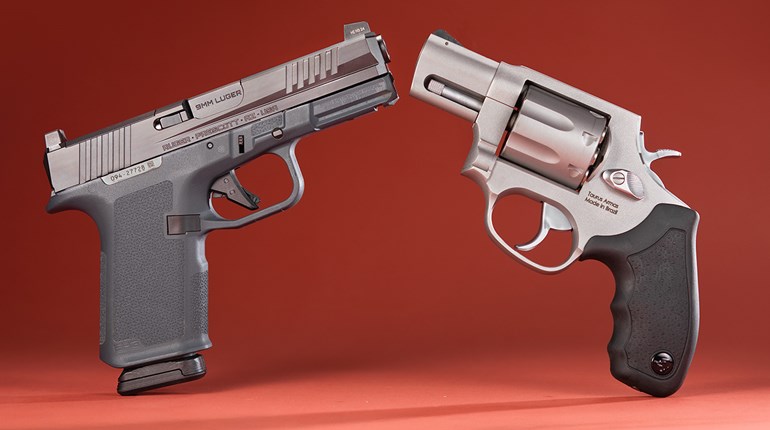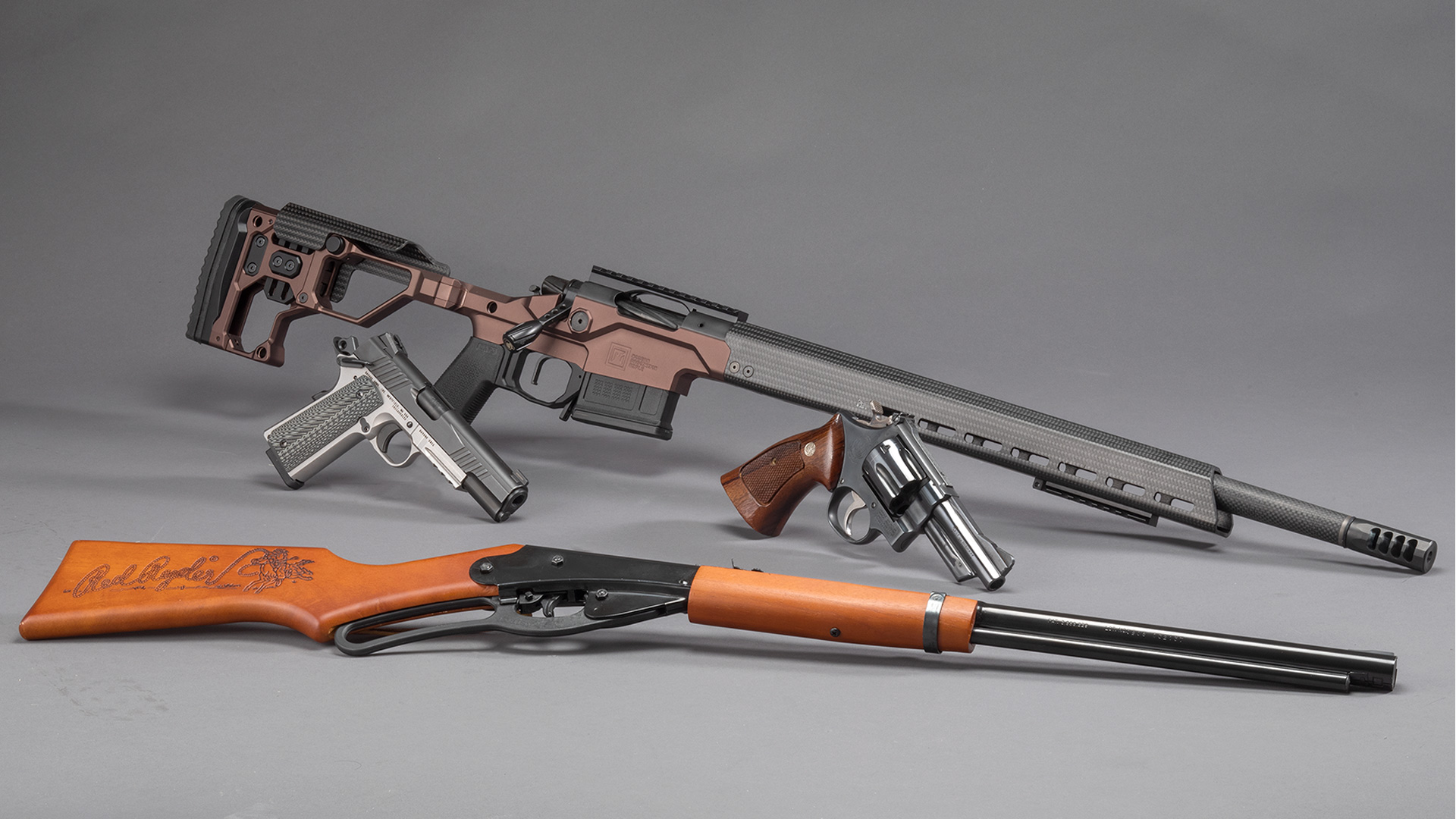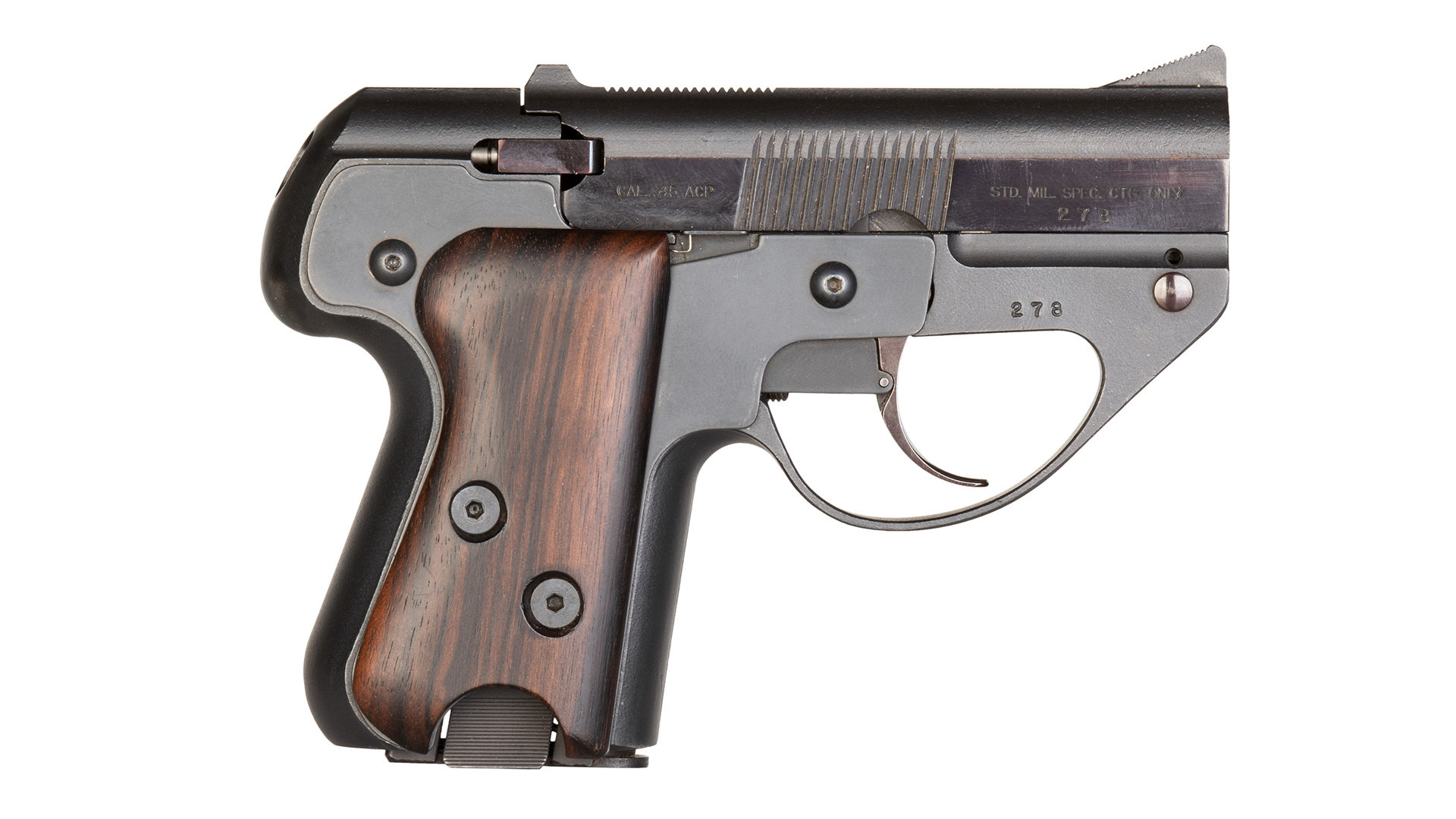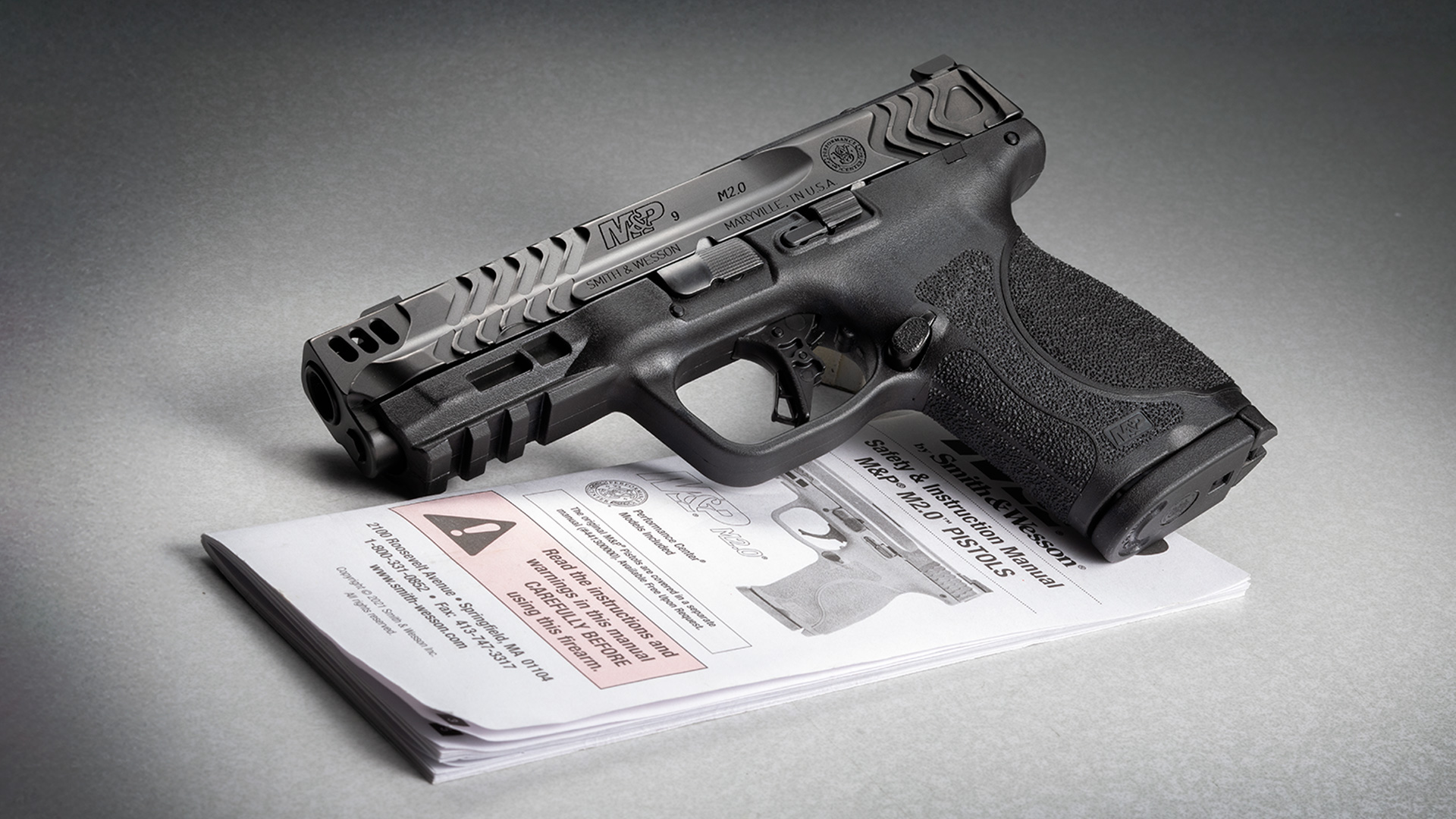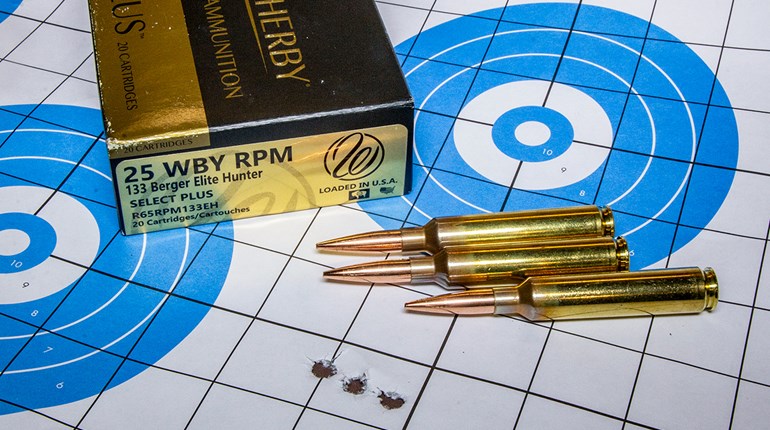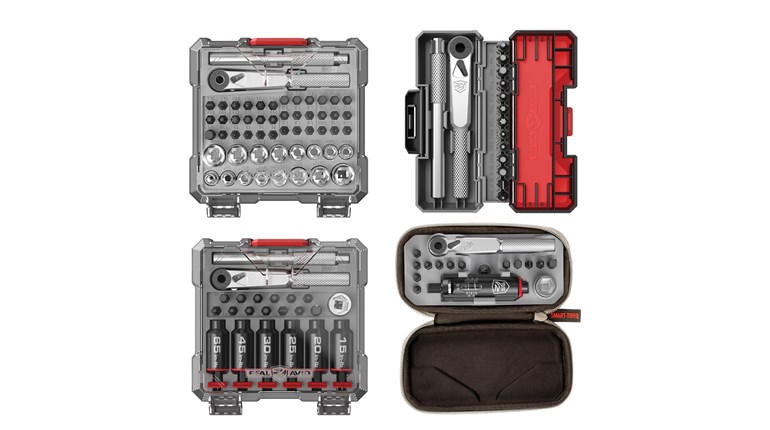
It’s good to keep in mind that every bullet that comes out of your gun is going to hit something—or somebody. That is one of the reasons that we should address a threat with the fewest shots, and the most center hits, possible. Practicing, for our purposes, should be defined as taking the things we learned in training and making them a habit. Going slow during practice sessions is a good thing.
To begin with, we take the time to get into a balanced fighting stance every time. We also practice our pistol presentation slowly—making sure that we have a proper grip each and every time. We focus our eyes on the spot on the target where we want our bullets to go and we break the shot as the gun comes into our line of vision and we see the front sight. Practice is what makes these essential elements become habits and good defensive habits are what will keep a person alive.
Shooting fast and calling it practice also leads to a lot of misses at ranges where misses aren’t really justified. Let me share a clue with you; if you are not putting your bullets exactly where they need to go in practice, your chances of doing that in an actual gunfight are almighty slim.
In practice, the smart thing to do is to shoot however slow is necessary in order to have every shot go exactly where it is supposed to land. Not close, but exactly right on target. Center hits build confidence and center hits win gunfights.
Even when adding movement to our practice sessions, going slow is a good thing. We make it a habit to stay balanced when we move. We avoid unnecessary movement and we avoid getting our feet tangled up.
You might argue that slow may be good in practice, but slow doesn’t win gunfights. I can’t argue with that. But working slow and working to create good habits is the foundation that winning speed is built upon. You truly have to learn to walk before you can run. When we have taken the time to ingrain good habits, we have built the foundation for winning in a criminal attack. Good habits and skill beat luck every time.












